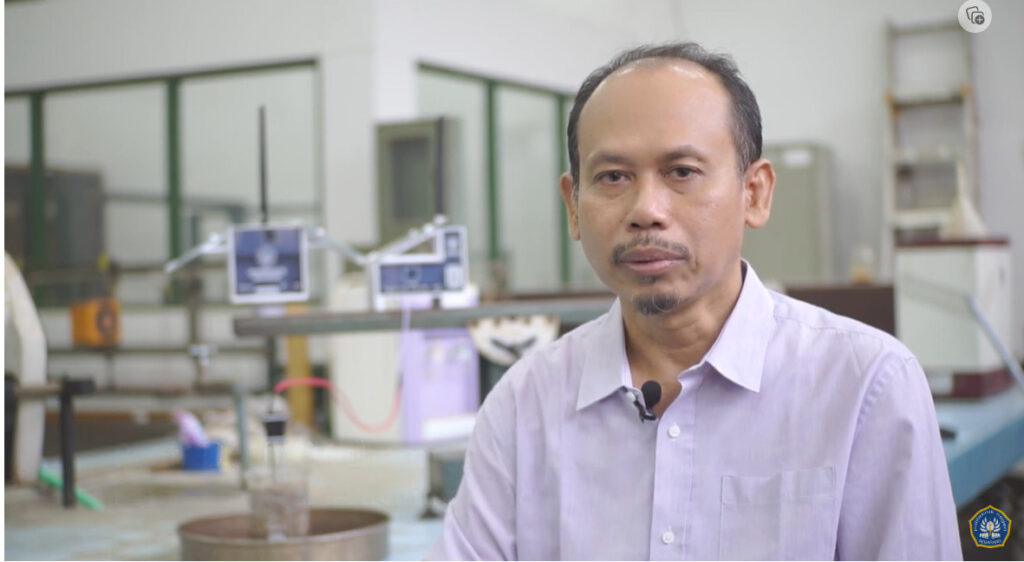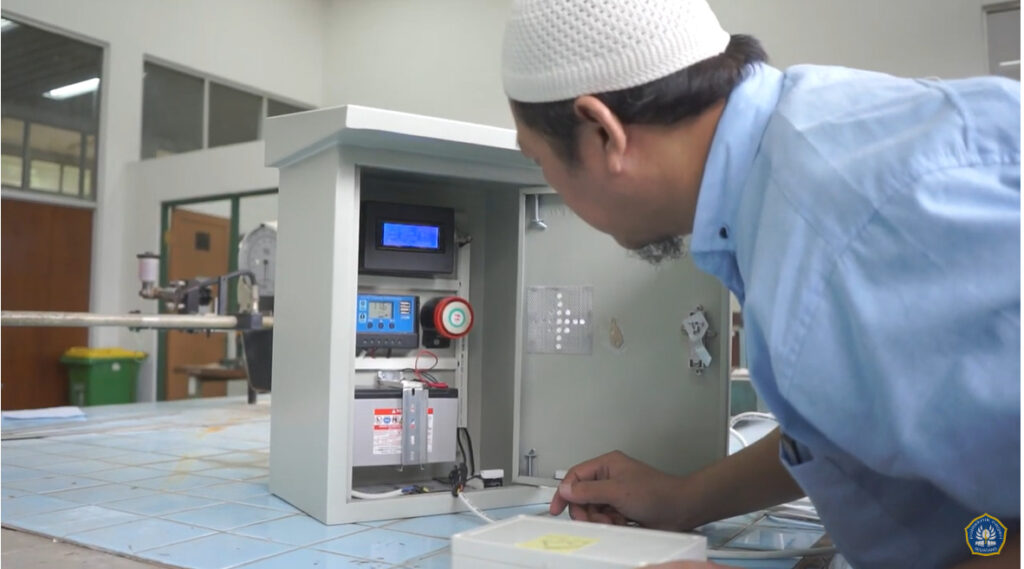Directorate of Vocational Studies – Vocational higher education research collaboration with industry continues to be encouraged to optimize various innovations that are in line with community needs. One of them is System innovation Monitoring and Early Warning System (EWS) Landslide developed by Semarang State Polytechnic (Polines) with industrial partners.
Through the 2022 Matching Fund program, Polines has succeeded in developing innovations that not only enrich knowledge, but also have a major impact on society and the government. The main impact is in building a management system for natural disasters, especially landslides.
As is well known, as a tropical country with high rainfall, Indonesia is one of the countries with a high threat of hydrometeorological disasters. One of them is the landslide disaster. Based on data from the National Disaster Management Agency (BNPB), landslides are often the deadliest disasters in Indonesia. Throughout 2022, at least seven landslides occur each month.
Quoted from Polines' official YouTube, Head of the Polines Matching Fund Program, Prof. Muhammad Mukhlisin, said that the idea of developing the System Monitoring and Early Warning System (EWS) Landslides are motivated by topographical conditions in Indonesia, especially those on the island of Java, both Central Java, West Java and East Java where landslides frequently occur.
"With a rain intensity of 3,000 millimeters per year, the potential for landslides to occur in hilly areas, especially those that occur in Central Java, is very easy to occur," said Prof. Muhammad Mukhlisin.

Therefore, continued Prof. Muhammad Mukhlisin, research and development of Monitoring Systems and EWS tools is very important. The main thing is to develop a technology system that can detect and then monitor the process of landslides, especially in areas that are prone to landslides.
In the 2022 Matching Fund program entitled "Product Downstream for Monitoring and Early Warning of Landslide Disasters", Polines is working with CV Anugrah Agung which is located in the Tembalang area, Semarang, Central Java.
Still according to Prof. Muhammad Mukhlisin, this innovative product is designed to be complex according to the parameters associated with the occurrence of landslides. This product consists of hardware in the form of five sensors, namely rainfall sensors, soil movement, groundwater pressure, groundwater level, and soil moisture sensors. The sensors are integrated with website monitoring www.ewspolines.com.
"So, in this system wedevelop five sensors that we're going to use for monitoring areas prone to landslides," said Prof. Muhammad Mukhlisin.
The five sensors above can be monitored remotely real time through website www.ewspolines.com developed by Polines. Thus areas or locations that are considered prone to landslides can be monitored on a regular basis real time after the five sensors are installed in the area.

“And if a dangerous condition occurs, it will provide early warning or warning initial to the people affected by the potential for landslides to occur, "continued Prof. Muhammad Mukhlisin.
Prof. Muhammad Mukhlisin hopes that this product development can complement landslide disaster mitigation technology that is effective, integrated, and accessible. In addition, this product development, according to Prof. Muhammad Mukhlisin, is a form of Polines support in helping the government to realize the National Disaster Management Plan program. (Polines/Nan/Cecep)
Source: vocational.kemdikbud.go.id

